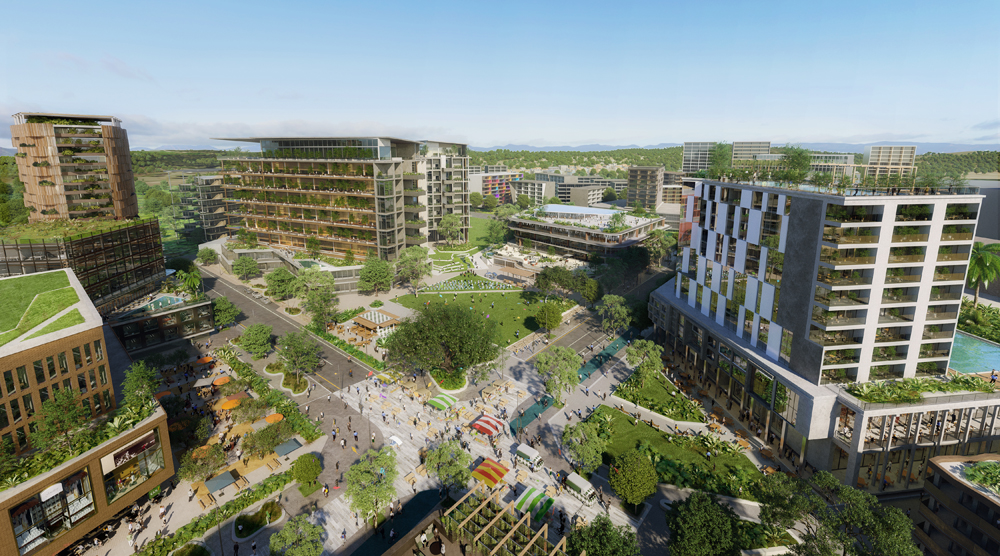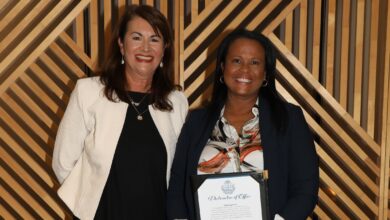Tapping into the ‘shared economy’ will be a major focus for Ripley Town Centre developer Sekisui House Australia, according to a newly-released vision paper.
Earlier this month, the developer released an in-depth vision paper titled Ripley Town Centre The Masterplan Vision – Unpacked.
It builds on information released in mid-2019 which set out the developer’s plan to create a $1.5 billion town centre through 10 interconnected character areas supported by a 20-minute neighbourhood philosophy.
The idea behind the 20-minute philosophy is for residents to be within 20 minutes of healthcare, education, recreational, commercial, community, public transport and sporting facilities.
The latest document highlights the developer’s commitment to improving the standard of economic, social and environmental sustainability.
Also released are never before seen images of how the community may look.
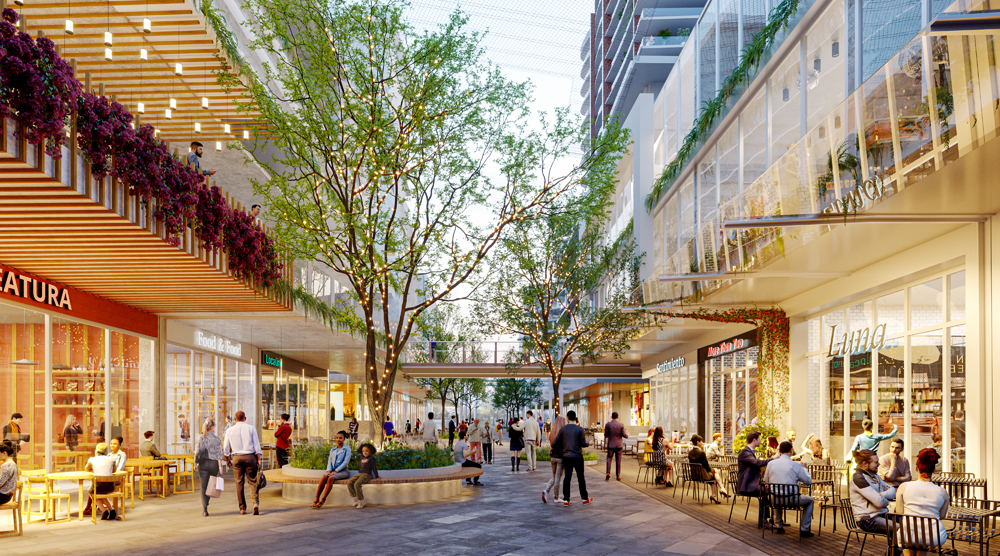
An artist impression of Ripley Town Centre. Note: Subject to change and council approval.
A major focus is on the development of a shared economy to “enable residents to work where they live, allowing them to acquire and share access to the goods and services within the community’s ecosystem”.
Initiatives planned include private electric car share schemes, guest apartment share schemes and potentially the largest private community energy network in Queensland.
Ripley Town Centre is expected to welcome about 133,000 new residents by 2036.
Sekisui House senior development manager Taki Hashimoto said the detailed vision paper gave a clear indication of the developer’s plans.
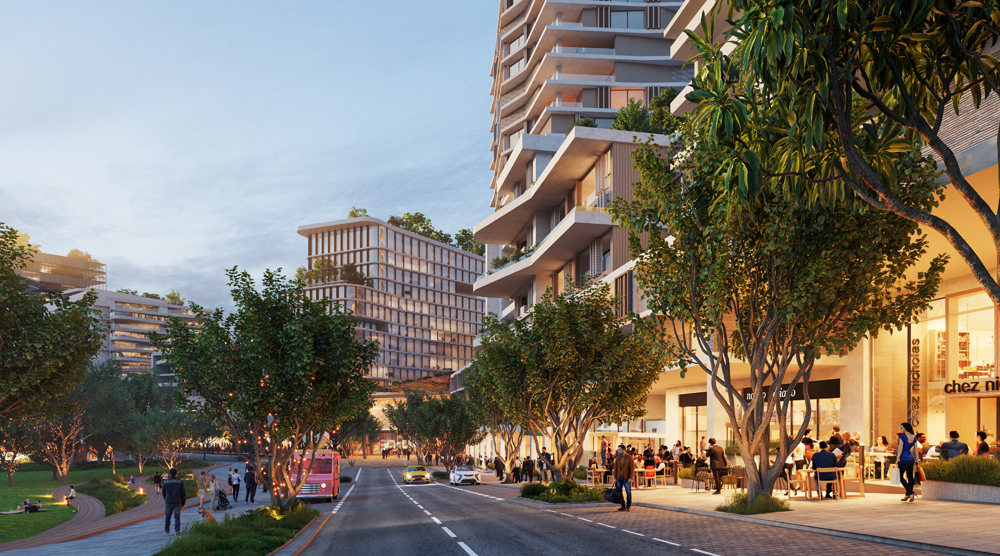
Artist impression of The Esplanade (street view) at Ripley Town Centre. Note: subject to change and council approval.
“Our aim is to enable residents and commercial partners to reduce their living and operational costs, and save money on not just utility overheads, but also on commuting costs and unnecessary infrastructure,” Mr Hashimoto said.
“In turn, residents, retailers and commercial operators will reap the benefits of a greater local spend, shared sustainable infrastructure and affordable utilities.
“Our vision is to achieve a net-zero energy community where residents, retailers and commercial operators can sell excess energy created by their asset to other players within the community, and capitalise on another income stream.”
Sekisui House Australia has partnered with WINConnect to build a private, community energy network, enabling Ripley Town Centre to generate and use power within the community and purchase additional energy required to operate at wholesale prices.
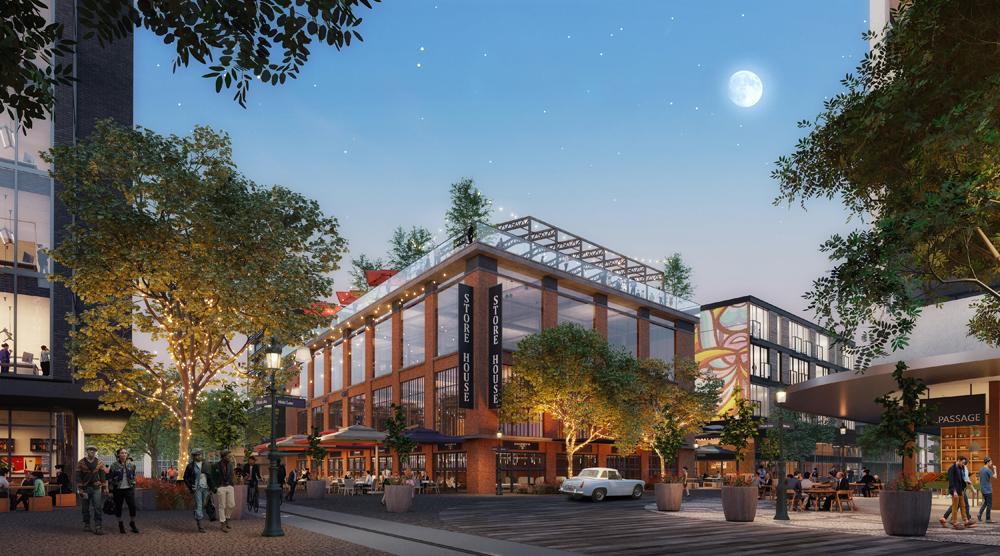
Artist impression of the planned North Village at Ripley Town Centre. Note: subject to change and council approval.
Knight Frank property manager for Ripley Town Centre and chief economist Ben Burston said catering for residents’ needs close to home had proven benefits.
“It is increasingly accepted that communities which provide employment, retail and social needs within a defined area have both ecological and social benefits, with reduced travel, better work-life balance and a greater connectedness to neighbours,” he said.
“As such, a considered strategy to deliver sustainable communities with rich amenity will help to maximise economic value over the long term.”
Key to the success of the masterplan vision will be the delivery of the Ipswich Central to Springfield Central Public Transport Corridor.
Mayor Teresa Harding said investment in a transport corridor between Ipswich Central and Springfield Central to connect high-growth areas such as Ripley, Deebing Heights and Yamanto – was essential.
“Council has invested in the development of a Strategic Business Case to assess demand for the Ipswich to Springfield transport corridor” Mayor Harding said.
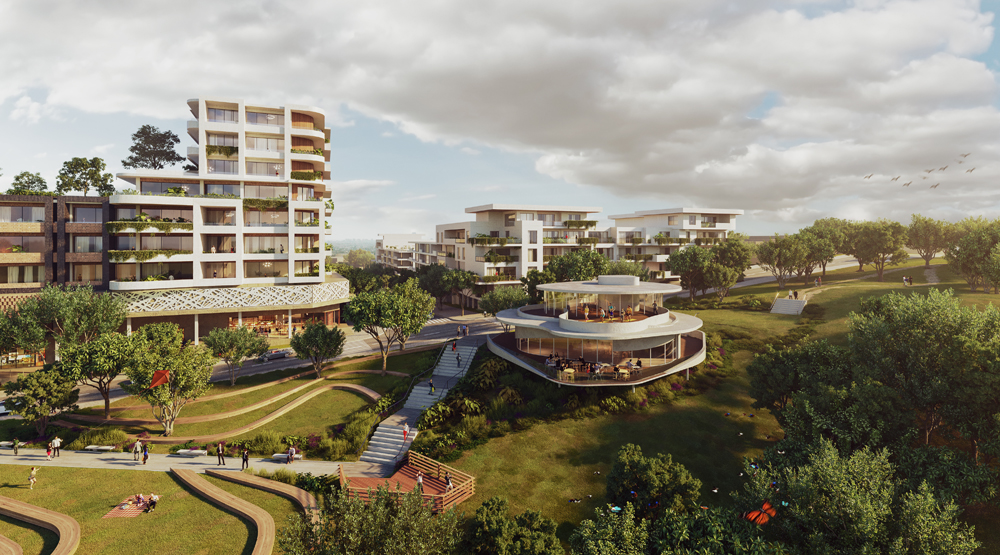
Artist impression of Parkside Village planned for Ripley Town Centre. Note: subject to change and council approval.
“Infrastructure investment in a rail line, improved roads and more public bus services will be crucial to meet the future growth demands.
“The next step is the development of a Preliminary Business Case and then a Detailed Business Case, which will cost around $5 million, and further consider the options and project costing and benefits analysis.
“Projects of this scale and nature take a long time to develop, design and deliver and with our current growth rates and future demand, we cannot afford to wait.
“We have self-funded the first stage of the Business Case and further investment from the State and Federal Governments is required to enable the options analysis to progress in a timely manner.”
To read more about Sekisui House Australia’s Ripley Town Centre masterplan vision, visit www.ripleytowncentre.com.au
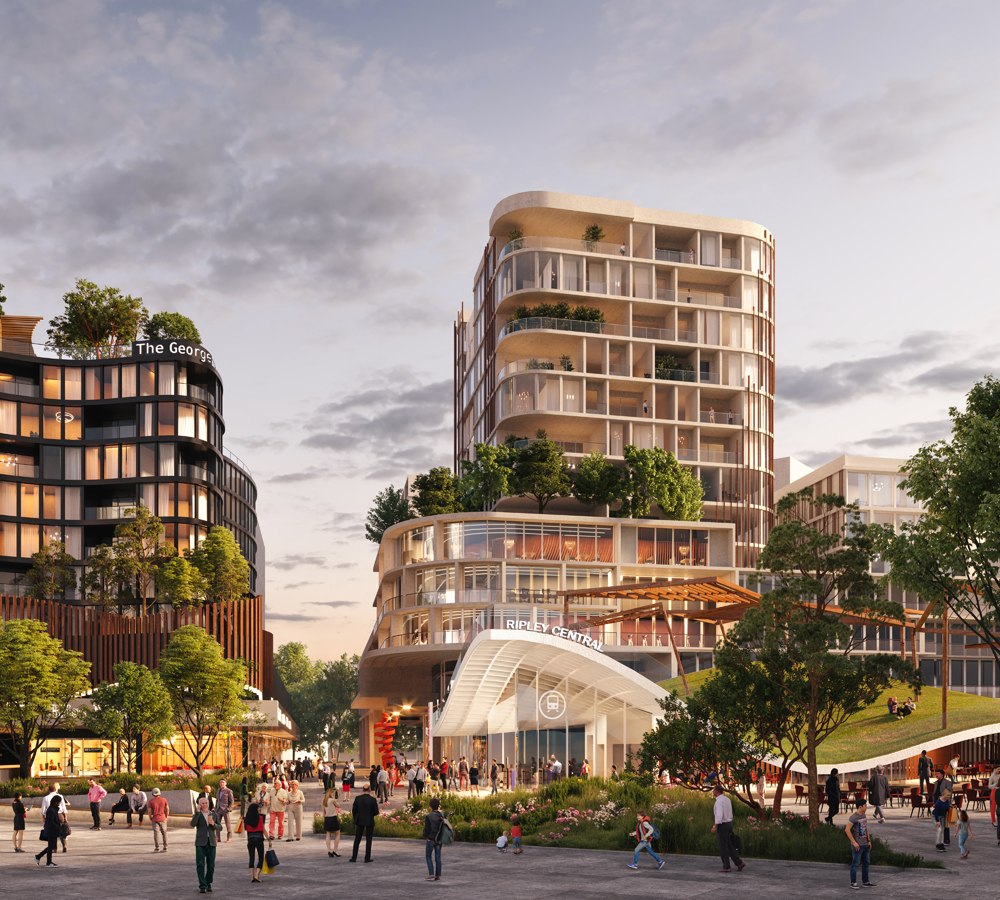
Artist impression of The Hub planned for Ripley Town Centre. Note: subject to change and council approval.

